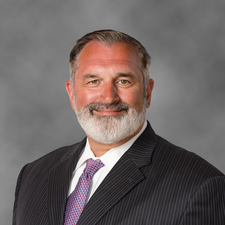
Alicia Adamczyk
March 11, 2024
Inflation, high interest rates, a rocky job market, and the COVID-19 pandemic—they all have American adults feeling more anxious about money, with more people saying they're the least secure about their finances in over a decade. But those same individuals also said they're still planning to spend money on dining out and vacations and other forms of entertainment this year.
Those are some of the takeaways from Northwestern Mutual's 2024 Planning and Progress Study, which surveyed 4,588 American adults in January. A full third of respondents, 33%, reported feeling financially insecure—up from 27% in 2023, and the highest share since Northwestern Mutual began measuring financial security in 2012. Just 41% of respondents reported feeling very financially secure, the smallest share in the report's history.

The Social Security cost-of-living adjustment will be less generous in 2024 thanks to moderating inflation. | Natalia Gdovskaia
There are any number of reasons for that, Christian Mitchell, chief customer officer at Northwestern Mutual, said at a press event for the survey. Though the economy appears stronger now according to traditional metrics like cooling inflation, lower unemployment, and a roaring stock market, many Americans have lingering concerns. Since just 2020, they've endured a pandemic that caused joblessness to spike, decades-high inflation, and rising interest rates. A contentious presidential election and global instability aren't likely to help matters.
'It's hard to feel positive'
That recency bias is weighing on many Americans, particularly when it comes to higher prices. Inflation is the "clear driver underpinning that insecurity," according to the report, and it's overshadowing much of the positive economic news. More than half of U.S. adults named it as the single largest obstacle to financial security.
Inflation reached 9% in mid-2022, the highest rate in 40 years, and it still remains above the Federal Reserve's 2% target. High food and housing prices, in particular, are stretching budgets thin: Food prices are up double digits in the past three years, and housing costs have never been higher.
Though inflation has cooled recently, more than half of respondents are expecting it to keep increasing, and just 9% of households said their income is growing at a faster pace. Americans want prices back at pre-pandemic levels, the Federal Reserve has noted, but that isn't happening.
"'Financial shock fatigue' and fragility are holding people back from positive feelings about their own financial security," Mitchell said in a press release. "Despite the growing economy, Americans have had to endure one financial disruption after another over the last several years, and it’s hard to feel positive when you don’t know what’s around the corner."
Higher interest rates—initiated by the Fed in order to combat inflation—are compounding Americans' pessimistic view of the economy. It's more expensive to have debt or borrow money for younger millennials and Gen Z than ever before, Mitchell noted.
That's especially important to consider as total credit card debt in the U.S. surpassed $1 trillion for the first time ever in 2023—partly due to inflation—and it keeps growing. Data from Credit Karma shows younger generations are getting hit the hardest.
"These consumers are increasingly relying on credit to get by," Mark Elliot, chief customer officer at LendingClub, recently told Fortune. "Higher debt levels hamper one’s ability to achieve financial goals, but also pose long-term risks to economic well-being and mental health."
Plus, it's hard to overstate how mortgage interest rates and rents are affecting sentiment. The median monthly mortgage payment has increased from $1,500 in 2021 to over $2,600, according to Redfin, while current asking-rate rents are up 30% since the start of the pandemic. More Americans have been locked out of the housing market while also paying more and more each month to rent.
And economists actually may be underestimating just how much rising rates are harming consumers. A new working paper from a group of researchers, including former Treasury Secretary Larry Summers, finds that the official consumer price index from the Bureau of Labor Statistics doesn't fully account for how much more expensive rising interest rates make debt—particularly mortgages, but also car payments and credit card debt. When rising interest rates are accounted for in a new inflation measure, consumer sentiment matches up better with the rising cost of living.
"Consumers, unlike modern economists, consider the cost of money part of their cost of living," the authors note, and "the interest payment on a new 30-year mortgage for the average house has increased more than threefold since 2021."
'Build those moments into a plan'
At the same time, Americans aren't necessarily planning to slow down their spending, which has kept the economy afloat even amid high prices and high interest rates. The report finds 59% of adults say they'll spend the same or more on discretionary purchases in 2024. Gen Z is the most likely generation to say they aren't pulling back, while Gen X is most likely to reign in spending.
Mitchell pointed to a recent report from the Federal Reserve that showed how people under 40 have seen their net worths rise the fastest in the years since the pandemic. In turn, they may feel more confident in their ability to spend and still pursue other goals, like saving and investing.
He also noted the seeming disconnect between Americans' perception of their financial security and their plans to keep spending, warning consumers not to ignore longer-term consequences.
"Treating yourself to nice things or experiences can feel great if that’s part of a sound financial plan, but if it’s not planned for, any emotional benefits may be short-lived—or even turn upside-down," Mitchell told Fortune. "My advice: If you want to splurge, then splurge, but build those moments into a plan so you can feel financially secure—and not guilty—about them."
c.2024 Fortune Magazine. Distributed by The New York Times Licensing Group.
This Fortune article was legally licensed by AdvisorStream.



